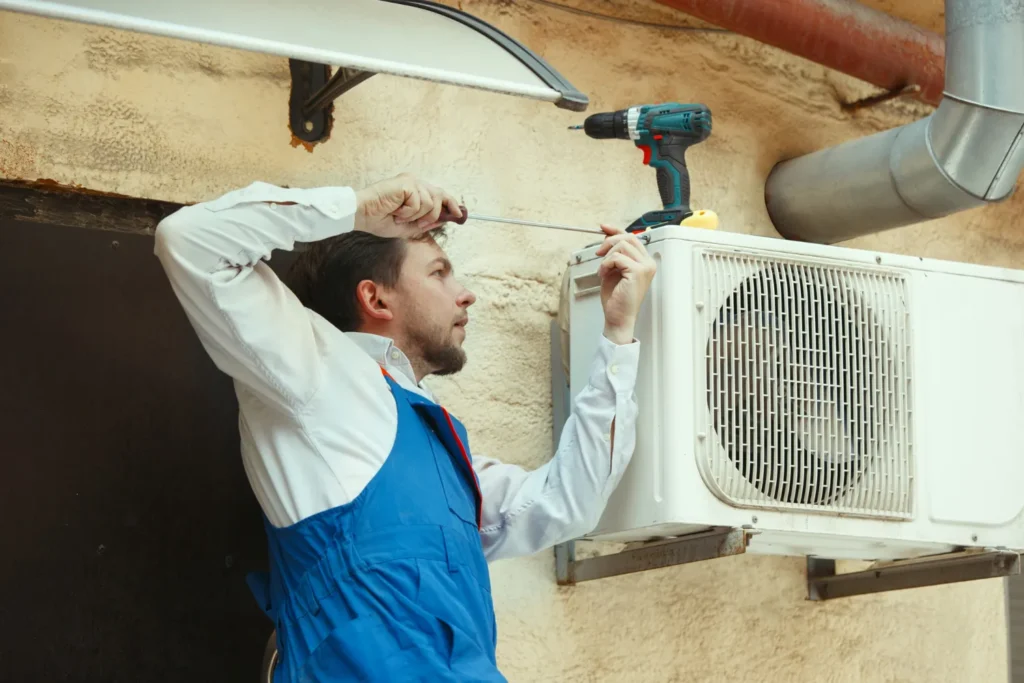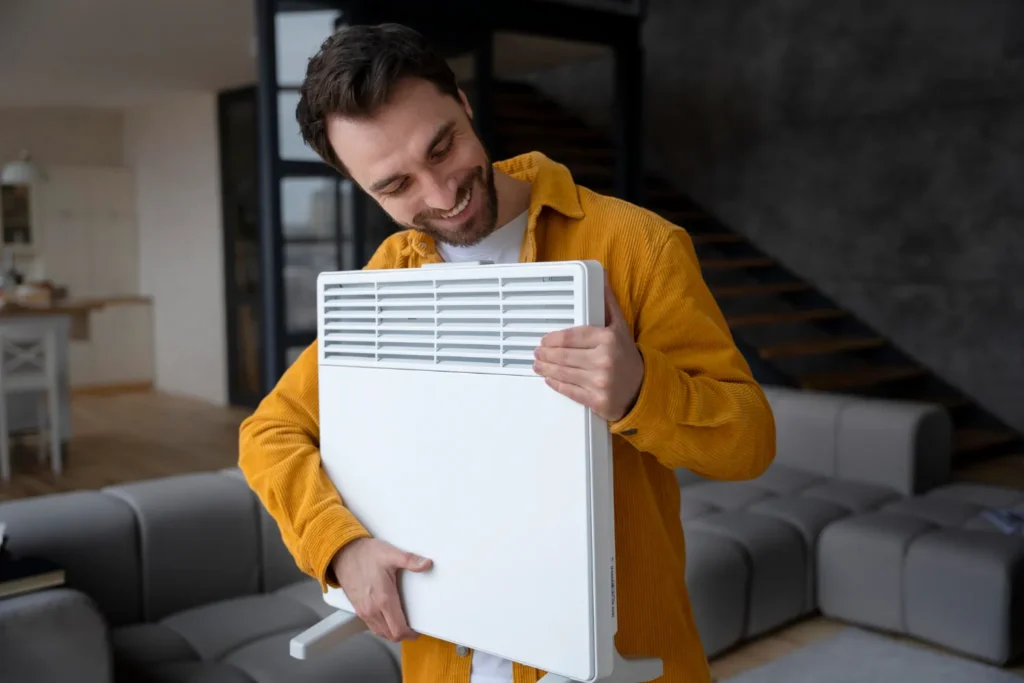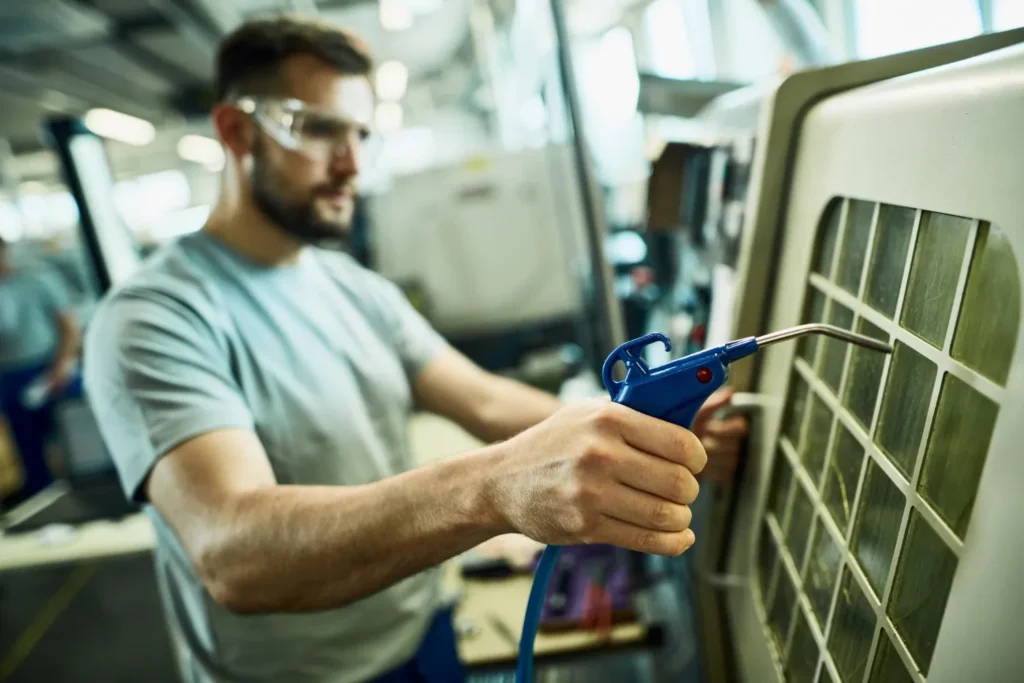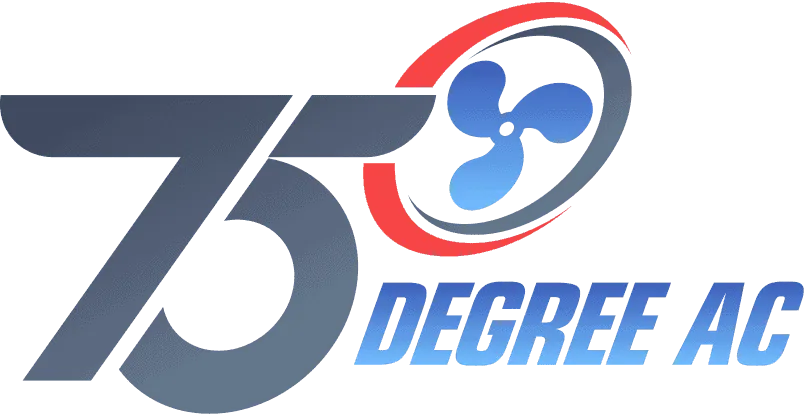Ready to beat the heat and save some bucks? Learn the ropes of DIY air conditioner cleaning! Cleaning your air conditioner is essential for maintaining efficiency and keeping your home comfortable.
DIY air conditioner cleaning is cost-effective and ensures that your AC operates at its best. Let’s dive into some simple yet effective methods to clean your air conditioner and keep it running smoothly throughout the year.
Table of Contents
Clean or replace the filter

The filter is one of the most crucial components of your air conditioner. Over time, it can become clogged with dust, dirt, and other debris, hindering airflow and reducing efficiency. To clean the filter, simply remove it from the unit and vacuum away any debris. If the filter is heavily soiled or damaged, replacing it with a new one is best to ensure optimal performance.
Vacuum the coils
The coils in your air conditioner play a vital role in heat exchange, allowing the unit to cool the air effectively. However, dirt and debris can accumulate on the coils over time, insulating them and reducing their ability to transfer heat. To clean the coils, use a soft brush attachment on your vacuum cleaner to gently remove any buildup. Be careful not to bend or damage the coils during cleaning.
Clean the drain line.
The drain line is responsible for removing condensation from your air conditioner. Over time, algae, mold, and other contaminants can build up in the drain line, causing clogs and potential water damage.
To clean the drain line, use bleach and water to flush out debris. You can also use a pipe cleaner or a wet/dry vacuum to remove stubborn clogs.
Wipe down the exterior.
While it may seem trivial, DIY Air Conditioner Cleaning of exterior can help improve its efficiency and prolong its lifespan. Use a damp cloth to wipe away any dirt, dust, or debris from the exterior surfaces of the unit. Pay particular attention to the fins and vents, as these areas can quickly become clogged with debris, restricting airflow.
Schedule annual maintenance

In addition to regular DIY cleaning, you must schedule annual maintenance for your air conditioner. A professional technician can inspect your unit for any issues, clean and lubricate moving parts, and ensure it operates at peak efficiency. By investing in annual maintenance, you can prevent costly repairs and prolong the life of your air conditioner.
Clean Aircon Blower
The blower in your air conditioner is responsible for circulating air throughout your home. Over time, dust and debris can accumulate on the blower blades, reducing airflow and efficiency. To clean the blower, first, turn off the power to the unit.
Then, carefully remove the access panel and gently clean the blades with a soft brush or cloth. Be sure to avoid bending or damaging the blades during cleaning.
How to Clean Air Filters in Your Air Conditioner
Air filters are crucial in maintaining indoor air quality and protecting your HVAC system from dust and debris. Cleaning your air filters regularly is essential for ensuring optimal performance and efficiency.
To clean your air filters:
- Start by turning off the power to your air conditioner to prevent accidents.
- Locate the air filters behind the return air grille or inside the air handler unit.
- Remove the filters from the unit and inspect them for any visible dirt or debris.
If the filters are reusable, you can clean them by gently vacuuming any dust or debris using a soft brush attachment. If the filters are disposable, simply replace them with new ones to ensure optimal performance.
Checking the manufacturer’s recommendations for cleaning your air conditioner
It’s essential to consult the manufacturer’s recommendations for DIY Air Conditioner Cleaning to ensure that you follow the correct procedures and use the appropriate cleaning products. Some manufacturers may recommend specific cleaning methods or products to maintain your unit’s warranty and prolong its lifespan.
Before cleaning your air conditioner, refer to the owner’s manual or contact the manufacturer for guidance. They can provide valuable insight into the best practices for cleaning your specific make and model of air conditioner, helping you avoid any potential damage or voiding of the warranty.
How Often Should You Clean Your Air Conditioner?
The frequency of DIY Air Conditioner Cleaning depends on several factors, including the environment, usage, and pets or allergens in your home. As a general rule of thumb, DIY Air Conditioner Cleaning at least once a month during peak usage periods, such as the summer months, is recommended.
Additionally, you should schedule annual maintenance for your air conditioner to ensure its operating at peak efficiency and performance. During annual maintenance, a professional technician can inspect your unit for any issues, clean critical components, and make any necessary repairs to keep your air conditioner running smoothly.
How to Clean the Outdoor Unit of Your AC

Cleaning the outdoor unit of your air conditioner is essential for maintaining airflow and preventing overheating. Follow these steps to clean the outdoor unit safely and effectively:
- Turn off the power to the unit to avoid any accidents.
- Remove debris from around the unit, such as leaves, twigs, or grass clippings.
- Use a garden hose to spray down the unit’s exterior, removing any dirt or debris.
- Carefully remove the fan grille and clean the fan blades using a soft brush or cloth.
- Inspect the condenser coils for any visible dirt or debris and clean them using a coil cleaner or mild detergent.
- Allow the unit to dry completely before restoring power and turning it back on.
Regularly cleaning the outdoor unit of your air conditioner can help improve efficiency and prolong its lifespan, ensuring that your home stays relaxed and comfortable all summer long.
How to Clean Your Indoor AC Unit
Cleaning your indoor AC unit is essential for maintaining indoor air quality and preventing the buildup of dust and debris. Follow these steps to clean your indoor AC unit safely and effectively:
- Turn off the power to the unit to avoid any accidents.
- Remove the access panel to expose the evaporator coils and drain pan.
- Inspect the evaporator coils for any visible dirt or debris and clean them using a coil cleaner or mild detergent.
- Use a wet/dry vacuum to remove standing water from the drain pan and clear clogs from the drain line.
- Replace the access panel and restore power to the unit.
- Consider using a dehumidifier to help control moisture levels and prevent mold growth in your indoor AC unit.
Regularly cleaning your indoor AC unit can help improve airflow, reduce energy consumption, and prolong the life of your HVAC system, keeping your home comfortable year-round.
FAQ About DIY Air Conditioner Cleaning
How do I clean my air conditioner myself?
DIY Air Conditioner Cleaning is relatively simple and can be done with essential household tools and cleaning supplies. Start by turning off the power to the unit to prevent any accidents, then follow the manufacturer’s recommendations for cleaning the various components of your air conditioner, such as the filters, coils, and drain line.
How do you make homemade aircon cleaning solutions?
You can make a homemade aircon cleaning solution using vinegar, water, and dish soap. Mix equal vinegar and water in a spray bottle, then add a few drops of dish soap.
Shake the bottle to combine the ingredients thoroughly, then spray the solution onto your air conditioner’s coils, fins, and other components. Allow the solution to sit briefly before rinsing it off with water.
What is the best thing to clean the AC?
The best thing to DIY Air Conditioner Cleaning depends on the specific components you’re cleaning and the severity of the dirt or debris buildup. For general cleaning, mild detergent and water are usually sufficient for cleaning coils, fins, and other components.
You can use specialized coil cleaners or vinegar-based solutions to break down buildup and restore efficiency for stubborn dirt or debris.
Is it OK to spray water on your air conditioner while running?
It’s not recommended to spray water directly onto your air conditioner while it’s running, as this can potentially cause damage to electrical components and increase the risk of electrical shock.
Instead, turn off the power to the unit before cleaning and spray down the exterior with a garden hose. Be careful to avoid getting water inside the unit or onto electrical components.
Can I just hose off my AC unit?
Hosing off your AC unit can effectively remove dirt and debris from the exterior surfaces. However, it’s essential to do so safely to avoid causing damage. Before hosing off your AC unit, turn off the power to prevent accidents. Use a gentle stream of water to rinse dirt and debris, careful not to bend or damage the fins or coils. Allow the unit to dry completely before restoring power and turning it back on.
